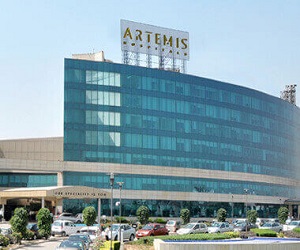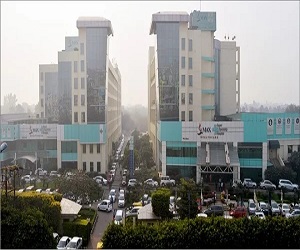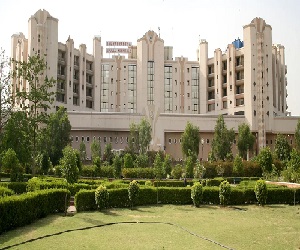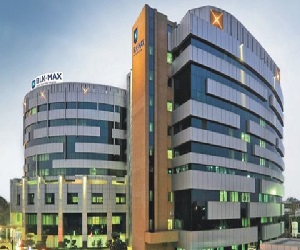Cordotomy surgery is a minimally invasive neurosurgical procedure that involves making precise incisions in the spinal cord to disrupt pain signal transmission. The primary goal of cordotomy is to provide long-lasting pain relief, especially for patients who have not found success with traditional treatment options.
Cordotomy surgery comes in two primary types: percutaneous and open procedures. In percutaneous cordotomy, a needle-like electrode administers radiofrequency energy to specific nerve fibers, forming a lesion that interrupts pain signals. Conversely, open cordotomy requires a small surgical incision to access the spinal cord directly and create the necessary lesion for pain relief.
The decision between percutaneous and open cordotomy hinges on several factors, such as the location and severity of the pain, the patient’s overall health condition, and the surgeon’s proficiency. Both methods have demonstrated high success rates in alleviating pain; however, the appropriate approach is chosen based on the unique requirements of each patient.
Benefits of Cordotomy Surgery
Cordotomy surgery in India presents significant advantages for patients grappling with chronic pain. Primarily, it offers precise pain relief by disrupting the transmission of pain signals within the spinal cord. In contrast to medications, which may entail side effects and offer only temporary relief, cordotomy surgery provides a more lasting solution.
Furthermore, cordotomy is characterized as a minimally invasive procedure, involving smaller incisions compared to conventional open surgeries. This approach leads to reduced pain, less scarring, and quicker recovery times for patients. Moreover, the procedure carries a lower risk of complications, enhancing its safety and efficacy as a pain relief option.
In addition, cordotomy surgery can markedly enhance a patient’s quality of life. Chronic pain can be physically and emotionally taxing, restricting daily activities and diminishing overall enjoyment of life. By offering enduring pain relief, cordotomy surgery empowers patients to regain control and enjoy an improved quality of life.
The Cordotomy Surgery Process
The cordotomy surgery process typically involves several steps from initial consultation to post-operative care. Here is a general overview of what to expect:
Initial Consultation: When you consult with a neurosurgeon specializing in cordotomy surgery, they will review your medical history, perform a thorough physical examination, and engage in discussions about your symptoms and treatment objectives. Additionally, they may recommend imaging tests like an MRI or CT scan to further assess your condition and gather essential information for planning your treatment.
Preoperative Preparation: Before undergoing cordotomy surgery, once it has been determined to be appropriate, you will undergo preoperative preparations. These preparations typically include blood tests, an electrocardiogram (ECG), and other routine assessments. Your healthcare team will give you specific instructions regarding fasting and any medications that need to be stopped before the surgery.
Surgery Day: On the day of the surgery, you will be admitted to the hospital and prepared for the procedure. An anesthesiologist will administer anesthesia to ensure your comfort and pain relief during the surgery. The surgeon will then proceed with the cordotomy, using either a percutaneous or open approach as previously planned based on your specific needs and condition.
Recovery and Post-operative Care: After the surgery, you will undergo close monitoring in the recovery room before being transferred to a hospital room. Your medical team will implement pain management protocols to ensure your comfort, and you may receive medication to relieve any postoperative discomfort. Additionally, physical therapy and rehabilitation may be recommended to facilitate your recovery process.
Follow-up Visits: In the weeks and months after surgery, you will attend scheduled follow-up appointments with your healthcare provider. These visits are essential for monitoring your progress, evaluating pain levels, and addressing any questions or concerns you may have. They play a crucial role in ensuring your recovery is progressing well and in optimizing the long-term success of the surgery.
Recovery and Rehabilitation after Cordotomy Surgery
Recovery and rehabilitation following cordotomy surgery are critical for achieving a successful outcome. Although the exact timeline can vary based on individual factors, here are some general guidelines:
- Hospital Stay: Following cordotomy surgery, most patients typically stay in the hospital for a few days. During this period, your healthcare team will closely monitor your condition, manage pain effectively, and ensure that you are recovering satisfactorily. They will also provide instructions on post-operative care, including wound care and medication management, to support your recovery process.
- Pain Management: After the surgery, you may experience some pain or discomfort in the days following the procedure. Your healthcare team will provide suitable pain medication to ensure your comfort throughout the recovery period. It is crucial to adhere to the prescribed medication schedule and promptly communicate any unusual symptoms or concerns to your healthcare provider for proper management.
- Physical Therapy and Rehabilitation: Based on your individual requirements, your healthcare provider may recommend physical therapy and rehabilitation to facilitate your recovery. These therapies are designed to enhance strength, mobility, and overall functionality. Your healthcare provider will develop a customized rehabilitation plan tailored to address your specific condition and recovery goals.
- Gradual Resumption of Activities: During your recovery, it’s crucial to gradually reintegrate into your daily activities. Your healthcare provider will offer guidance on when and how to increase your activity levels safely and effectively. Adhering to these instructions is vital to prevent complications and optimize your overall recovery process.
- Follow-up Care: Regular follow-up appointments with your healthcare provider are essential for monitoring your progress, addressing any concerns or questions you may have, and ensuring your continued recovery after surgery. During these visits, your healthcare team will assess your pain levels, evaluate your functional outcomes, and make any necessary adjustments to your post-operative care plan. These appointments are critical for achieving a successful recovery and long-term pain relief.
Success Rate
Cordotomy surgery stands out for its remarkable efficacy in alleviating chronic pain, consistently delivering enduring relief to patients. Extensive research underscores its transformative impact on improving patients’ quality of life, with studies consistently showcasing positive outcomes following the procedure.
Research findings reveal that cordotomy surgery has been highly effective in reducing pain in a significant majority of patients suffering from cancer-related pain, with over 80% experiencing notable relief. Similarly, for individuals with chronic non-cancer pain, the procedure has demonstrated substantial efficacy, with more than 70% reporting improvements in pain management.
Risks of Cordotomy Surgery
As with all surgical procedures, cordotomy surgery involves certain risks and potential complications. It is crucial to fully understand these risks and engage in a detailed discussion with your healthcare provider before reaching a decision.
Moreover, it should be noted that cordotomy surgery may not achieve total pain relief for every patient. The effectiveness of pain reduction can vary based on individual circumstances, and some individuals may still necessitate supplementary pain management techniques. Your healthcare provider will evaluate your unique case and offer practical expectations tailored to your condition.
Advantages of Cordotomy Surgery in India
India has become a premier choice for cordotomy surgery, drawing patients globally in search of effective pain relief. Several factors contribute to India’s popularity as a destination for this procedure:
- World-Class Medical Facilities: India boasts state-of-the-art hospitals and medical facilities that feature the latest advancements in healthcare technology. These institutions are equipped with cutting-edge equipment and infrastructure, ensuring the highest standards of care and safety for patients undergoing treatment.
- Highly Skilled Healthcare Professionals: India is home to a pool of highly skilled and experienced healthcare professionals, including neurosurgeons who specialize in cordotomy surgery. Many of these experts have received international training and are renowned for their proficiency in the field. Patients can anticipate personalized care and comprehensive support throughout their treatment journey.
- Cost-Effective Treatment: One of the key benefits of opting for cordotomy surgery in India is its cost-effectiveness. Compared to many Western countries, the expense of medical treatments, including cordotomy surgery, is considerably lower in India. This affordability does not come at the expense of quality, making it an attractive option for patients seeking high-standard care at a more accessible price.
- Minimal Waiting Times: In certain countries, patients might experience extended wait times for specialized procedures such as cordotomy surgery. Conversely, in India, patients frequently benefit from swift treatment, significantly reducing the waiting period and enabling quicker relief from chronic pain.
- Holistic Approach to Care: Healthcare providers in India often prioritize a holistic approach to patient care, addressing not only the physical but also the emotional and psychological aspects of well-being. This comprehensive strategy ensures that patients receive personalized treatment tailored to their unique needs, fostering overall well-being and aiding in recovery.
Cost
The cost of cordotomy surgery in India can vary based on several factors, including the hospital chosen, the surgeon’s expertise, the length of the hospital stay, and any additional medical services needed. Typically, the cost ranges from around $3,000 to $8,000 USD or more.












